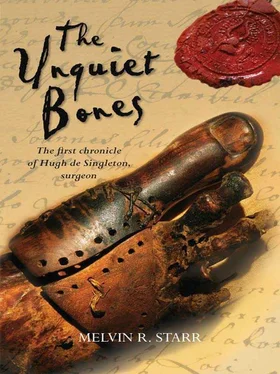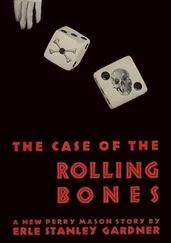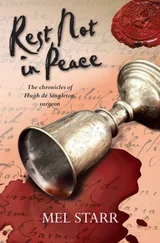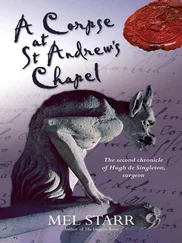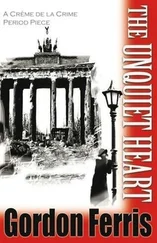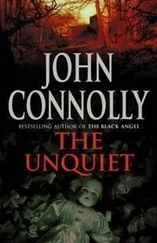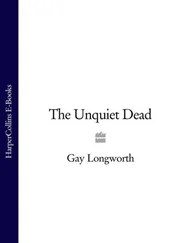Mel Starr - The Unquiet Bones
Здесь есть возможность читать онлайн «Mel Starr - The Unquiet Bones» весь текст электронной книги совершенно бесплатно (целиком полную версию без сокращений). В некоторых случаях можно слушать аудио, скачать через торрент в формате fb2 и присутствует краткое содержание. Год выпуска: 2008, Издательство: Kregel Publications, Жанр: Исторический детектив, на английском языке. Описание произведения, (предисловие) а так же отзывы посетителей доступны на портале библиотеки ЛибКат.
- Название:The Unquiet Bones
- Автор:
- Издательство:Kregel Publications
- Жанр:
- Год:2008
- ISBN:нет данных
- Рейтинг книги:4 / 5. Голосов: 1
-
Избранное:Добавить в избранное
- Отзывы:
-
Ваша оценка:
- 80
- 1
- 2
- 3
- 4
- 5
The Unquiet Bones: краткое содержание, описание и аннотация
Предлагаем к чтению аннотацию, описание, краткое содержание или предисловие (зависит от того, что написал сам автор книги «The Unquiet Bones»). Если вы не нашли необходимую информацию о книге — напишите в комментариях, мы постараемся отыскать её.
The Unquiet Bones — читать онлайн бесплатно полную книгу (весь текст) целиком
Ниже представлен текст книги, разбитый по страницам. Система сохранения места последней прочитанной страницы, позволяет с удобством читать онлайн бесплатно книгу «The Unquiet Bones», без необходимости каждый раз заново искать на чём Вы остановились. Поставьте закладку, и сможете в любой момент перейти на страницу, на которой закончили чтение.
Интервал:
Закладка:
The Angelus Bell awakened me early next day. It does so every day. Before the sun was over St Andrew’s Chapel I bid Wilfred good morning and found Bruce snoring contentedly in the marshalsea.
I rode northeast this day, to Yelford and Hardwick, then all the way to Witney. Plague had reduced the first two villages so I spent little time there. No one had gone missing.
Witney was grown large as Bampton, and plague had reduced it but little. Witney required more time. My task was to learn what I could, as thoroughly as I could, as quickly as I could. I decided on two strategies; seek an innkeeper, and approach an old woman or two. If such as these knew of no person mysteriously absent from the town, it was likely all its inhabitants could be accounted for. Two hours later an innkeeper and three grandmothers could recollect no missing citizen.
I returned to Bampton through fields brown with autumn, forests golden, as frost worked its designs. A pity, I thought, to be on such a morbid mission when beauty surrounded me. But this also reminded me of death. Leaves and stems were dying, as would I, some day. Would my death bring some brief glory to the world, as did the dying foliage?
Some deaths bring no radiance. To die young, or of some festering disease, this is an infamous way to meet God. Even the slaughter of battle may bring with it an aureole of dignity. I had chosen to spend my life battling against ignoble death — against wasting disease and injury. But now I found myself in a struggle against the calamity of murder, the death of the young. I felt unequal to the assignment. My feelings would nearly prove accurate.
I did not seek for a missing girl next day; ’twas Sunday. At the third hour, bells from the tower of the Church of St Beornwald called the faithful to matins and the mass. They called the unfaithful as well. I suppose the congregation included some of each.
Lord Gilbert did not attend. He and his family worshipped in a private chapel in the castle, but most others in the town could be expected to be present. Before plague struck, the nave was barely large enough to contain the parish. Now there was room enough and to spare.
Father Thomas led the two other vicars in procession around the church, blessing altars and congregation, and sprinkling holy water on both. A clerk led the prayer of confession and read the scripture for the day from St Paul’s epistle to the Galatians: “And let us not grow weary while doing good, for in due season we shall reap if we do not lose heart. Therefore, as we have opportunity, let us do good to all, especially to those who are of the household of faith.”
“Do not grow weary in doing good.” I thought this a word from God, for I was already grown weary of wandering the countryside searching for a girl who might be missing from some place of which I had never heard a hundred miles away.
My mind was so occupied that I neglected the prayers for the living and the dead. Father Thomas sang the mass well, and as I had some little training to do the same, my thoughts returned to the service in time to venerate the host and kiss the pax board. We shared the holy loaf, and as always after mass, I departed the church determined to live better, and in particular, to discover a name for a missing girl. I should attend mass twice each day. Although, come to think of it, there are lords who do for whom the practice seems without benefit.
I am always ravenous when mass is done. Although some break their fast before the sacrament, I hold with those who do not. After the midday meal of a Sunday, it is Lord Gilbert’s custom to invite tenants and yeomen to bring bows to the castle forecourt for practice at the butts. He provides a cask of ale to ensure good attendance, and a prize for the most competent marksman. As the award, usually two pence, is not granted until the last competition, those who rewarded themselves already with Lord Gilbert’s ale seldom stagger home with any coin.
Monday found me unoccupied, so I journeyed to the north again, to Curbridge, Minster Lovell, and Brize Norton. A woman had disappeared from Minster Lovell seven years earlier, but the gossip who told me of this was convinced her disappearance had to do with a band of Italian wool buyers who passed through the area a few days before her husband awoke to a cold bed. And the woman was twenty-six: too old to be the skeleton in my dispensary.
I did not mount Bruce again until Wednesday. I had an earache and a boil to deal with on Tuesday. Truth to tell, the child’s ear was not the only thing in Bampton which ached. My hindquarters were unaccustomed to days spent in a saddle. A day practicing my profession provided sorely needed respite.
On Wednesday I rode through Black Bourton, Alvescot, and Shilton, all the way to Burford. Burford was as large as Bampton, so I tried the strategy I had used at Witney: grandmothers and innkeepers. The second crone stopped my search.
The old lady narrowed her eyes when I asked if anyone was missing from the town. “Who wants to know?” she asked guardedly.
“I am the surgeon from Bampton,” I announced. If I expected this news to impress her, I was disappointed. She stood, a basket of turnips pressed against a hip, and waited for more information.
“A body has been found near Bampton. It cannot be identified, and no one from the town or nearby villages is unaccounted for. I am acting as Lord Gilbert Talbot’s agent to put a name to the corpse.”
“The smith’s girl went missing in early summer. A week after Whitsuntide, it was. Folks thought she’d run off with her lad, but he come back a day later, said he’d took a cart of oats to sell for his father. Moped around for weeks, he did. Still looks like devil’s got him by the ankles last time I saw ’im.”
“What was the girl’s name?”
“Margaret.”
“How old was she?”
The old woman screwed her face in concentration. “She were born afore my John died o’plague…maybe seventeen, eighteen years old.”
“Where can I find her family?”
“Just her father, Alard. Mother died seven, eight years back. His smithy’s down by the river, just across the bridge. Lord Thomas won’t let him set up on town side ’cause o’ fire.”
I found the smith easily enough. The man stood outside his hut and cast a practiced eye at Bruce’s gait as I crossed the river and approached. He seemed surprised as I drew up before him. Evidently he had seen no flaw in Bruce’s pace which would dictate a need for his services.
“You are Alard, the smith?” I asked by way of greeting. The question was rhetorical. One look at his forearms was enough to assure me of his trade, whatever his name.
“Aye,” he replied, unmoving.
“I am told you have a missing daughter.”
His back stiffened and his eyes, once dull, flashed.
“Aye. Four months now. Who are you? Have you news of her?”
I identified myself and told the smith the reason for my visit. But I did not tell him everything. If Lord Gilbert’s skeleton was this man’s daughter, he did not need to know yet where she was found or her condition when discovered.
“Had your daughter any injuries…broken bones?” I asked.
“Nay…She were a strong lass. Wait; when she were small she’d follow me about the smithy near all day. Could hardly get my work done for tumblin’ over her. Tried to pick up my sledge once. She were but seven or eight years old. ’Twas too heavy for her. Dropped it on her foot. Swole up an’ turned black for two weeks an’ more, but she were up an’ runnin’ again in a month or so. Troubles her now and again.”
“She limps?” I asked.
“Aye, a bit, when t’weather turns.”
“She may have broken a bone in her foot,” I remarked.
“Aye…so I thought,” he shrugged.
Читать дальшеИнтервал:
Закладка:
Похожие книги на «The Unquiet Bones»
Представляем Вашему вниманию похожие книги на «The Unquiet Bones» списком для выбора. Мы отобрали схожую по названию и смыслу литературу в надежде предоставить читателям больше вариантов отыскать новые, интересные, ещё непрочитанные произведения.
Обсуждение, отзывы о книге «The Unquiet Bones» и просто собственные мнения читателей. Оставьте ваши комментарии, напишите, что Вы думаете о произведении, его смысле или главных героях. Укажите что конкретно понравилось, а что нет, и почему Вы так считаете.
